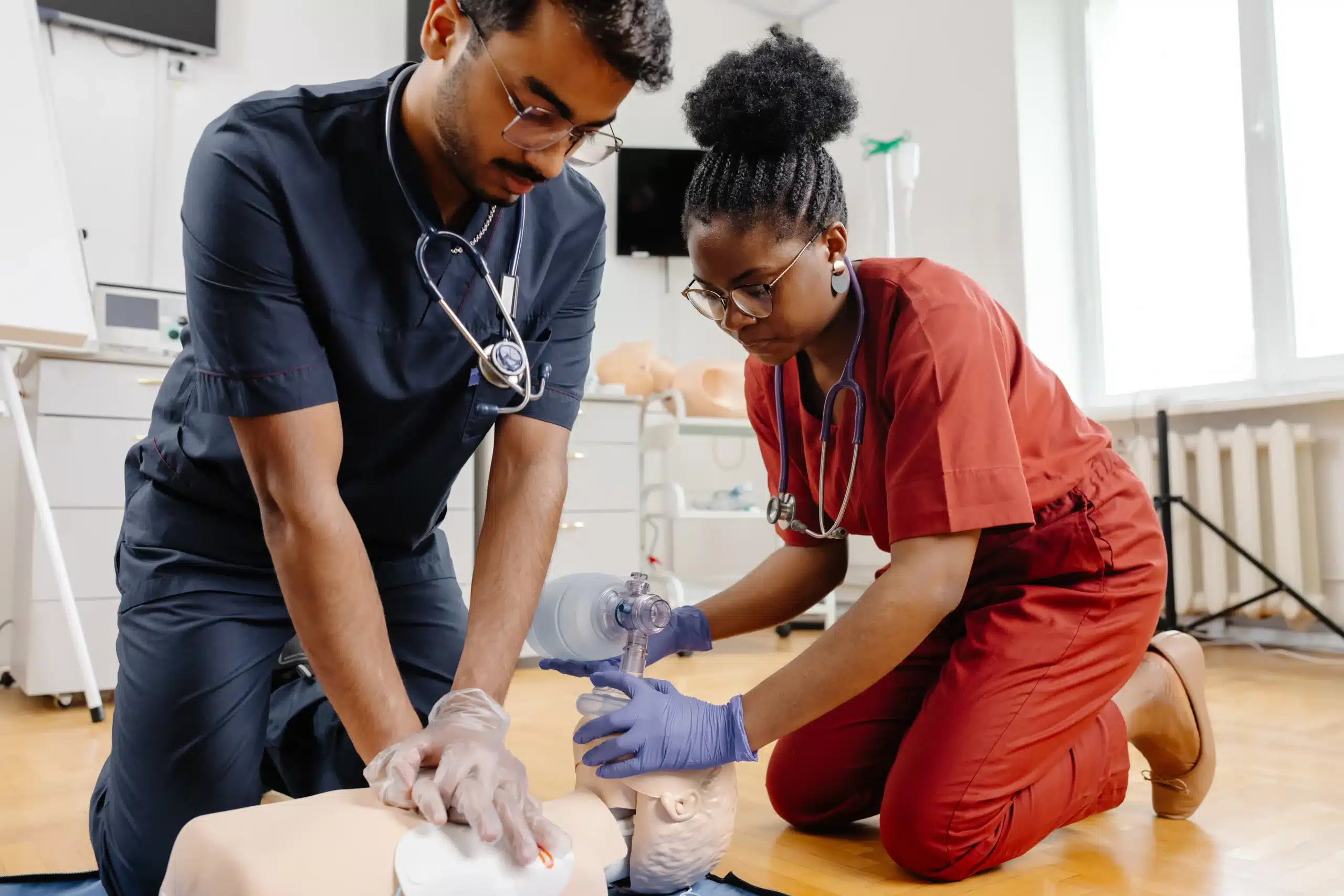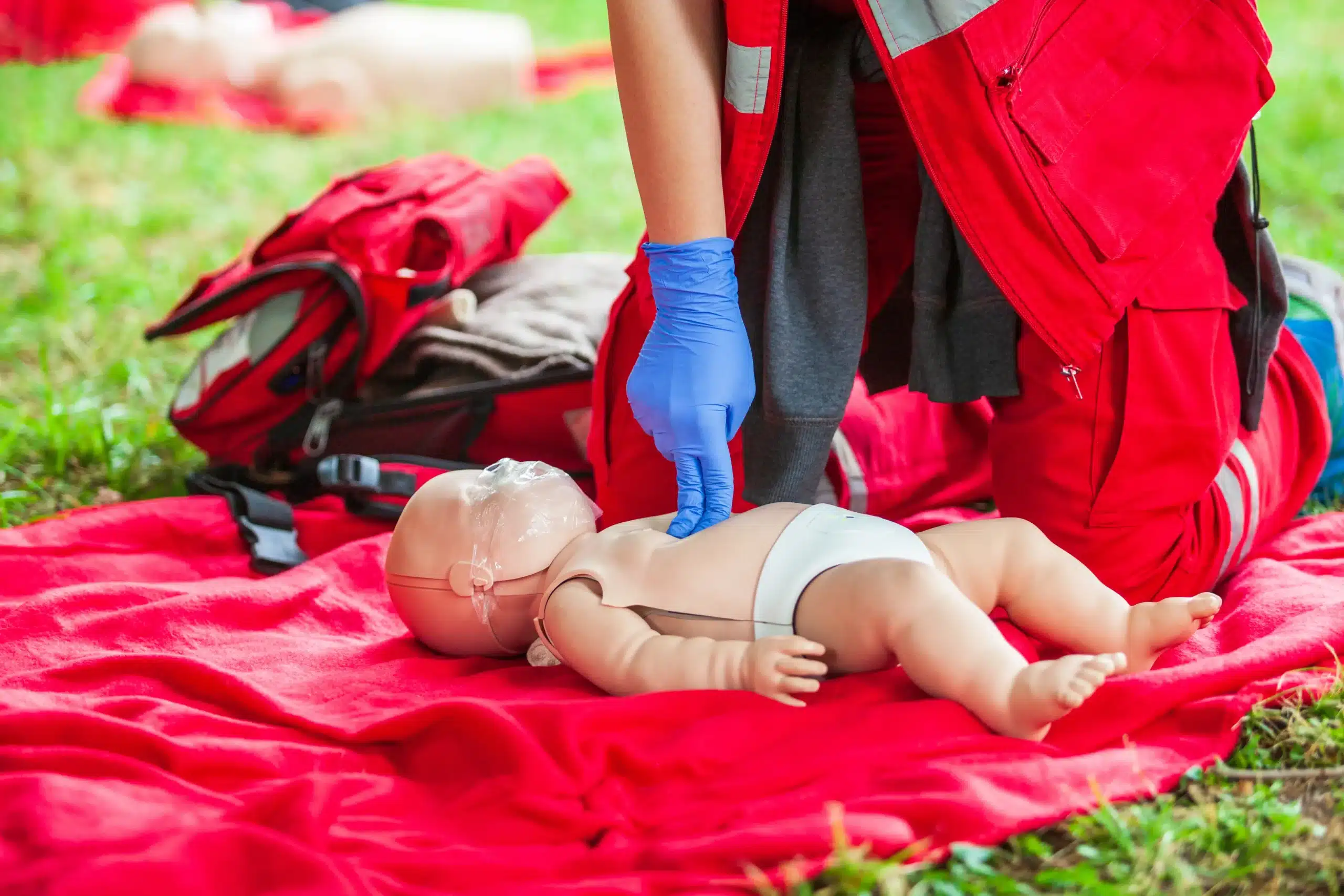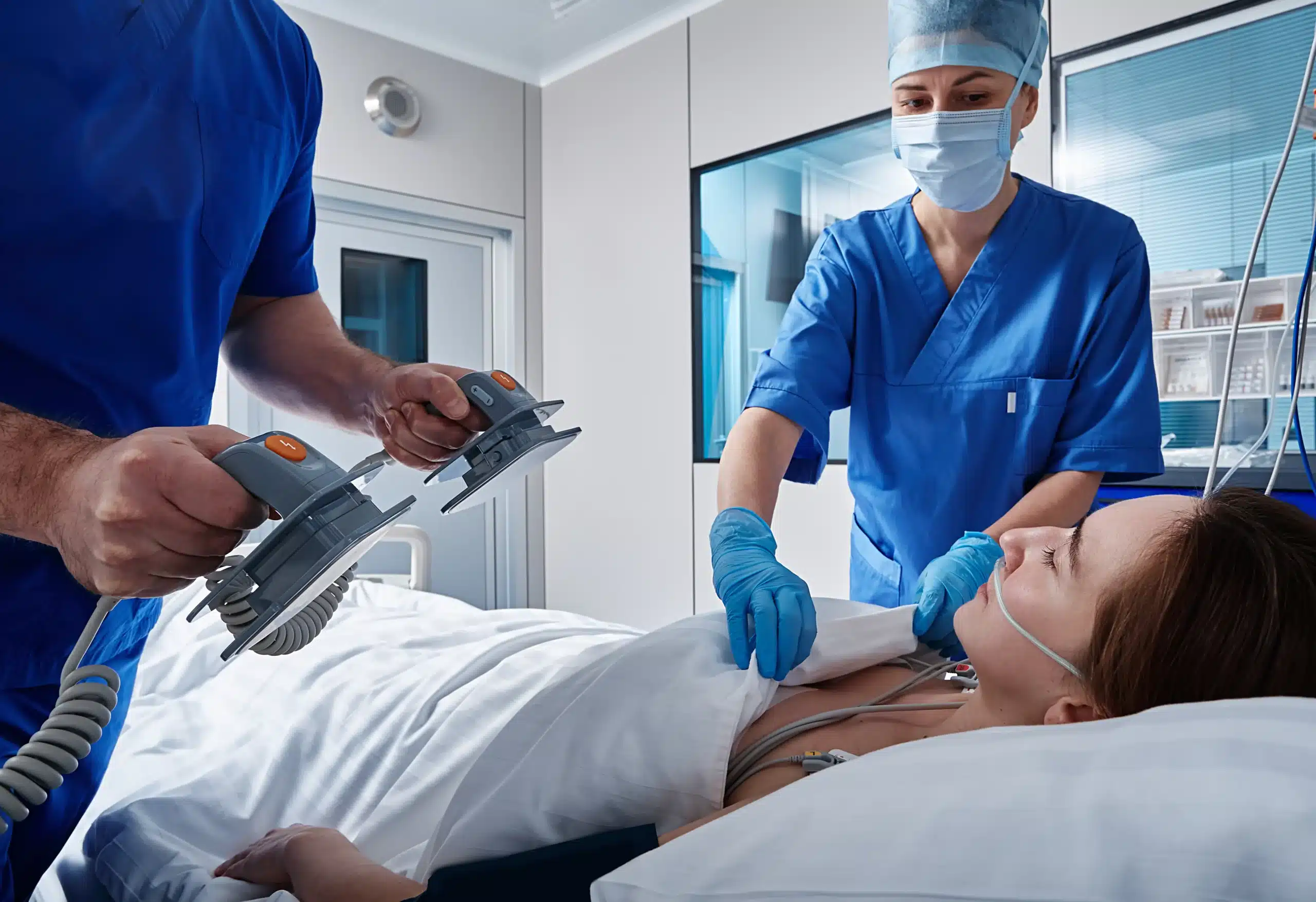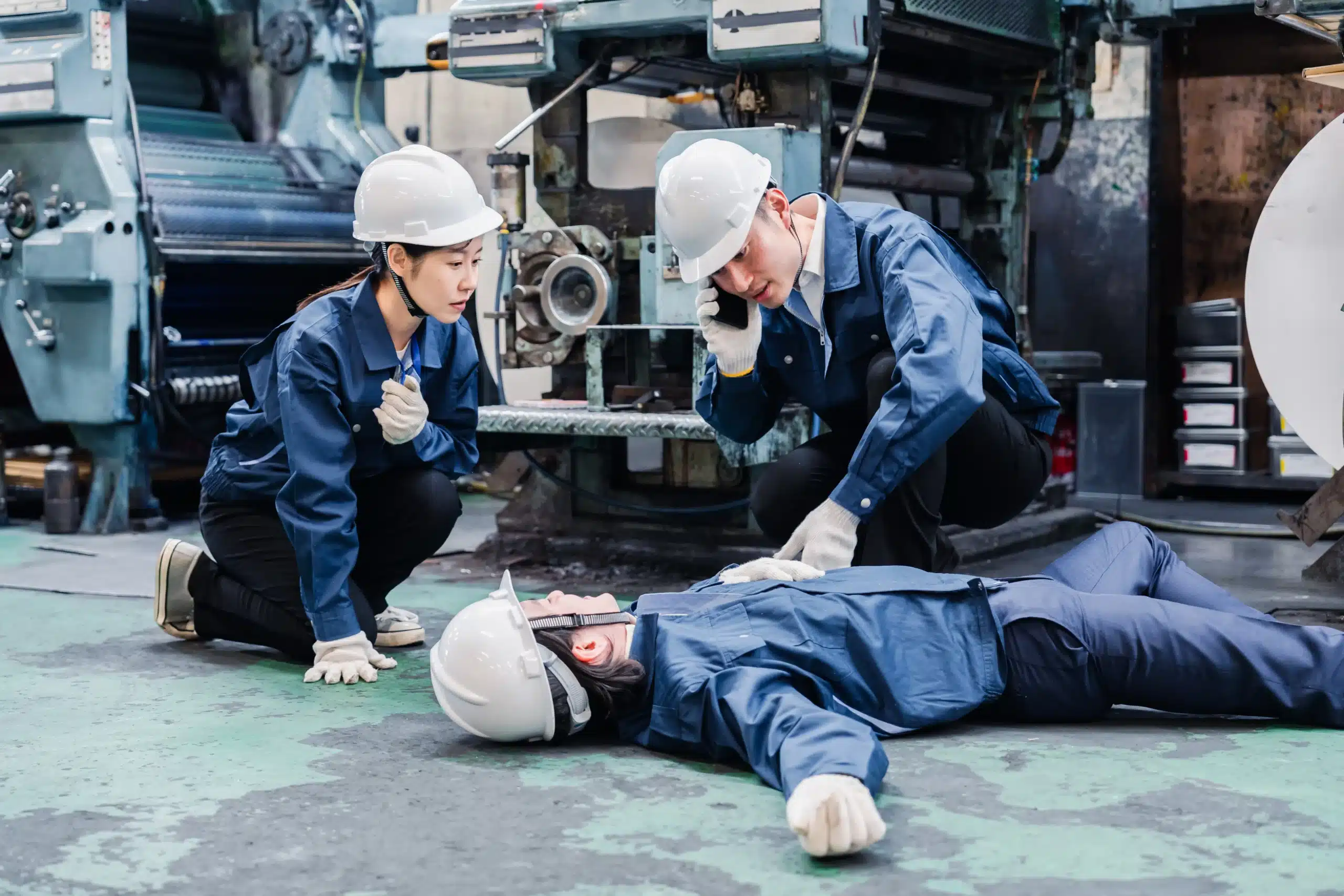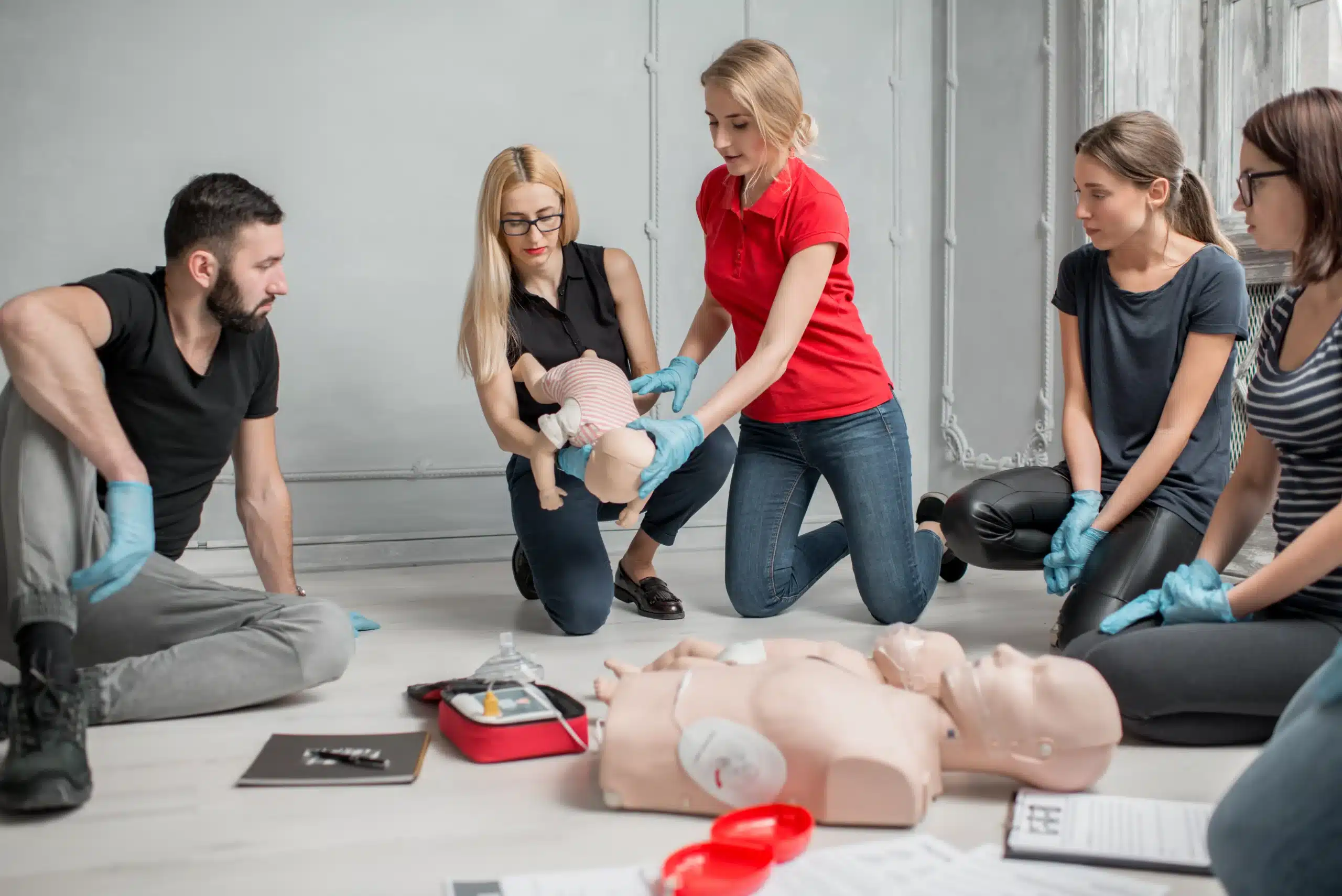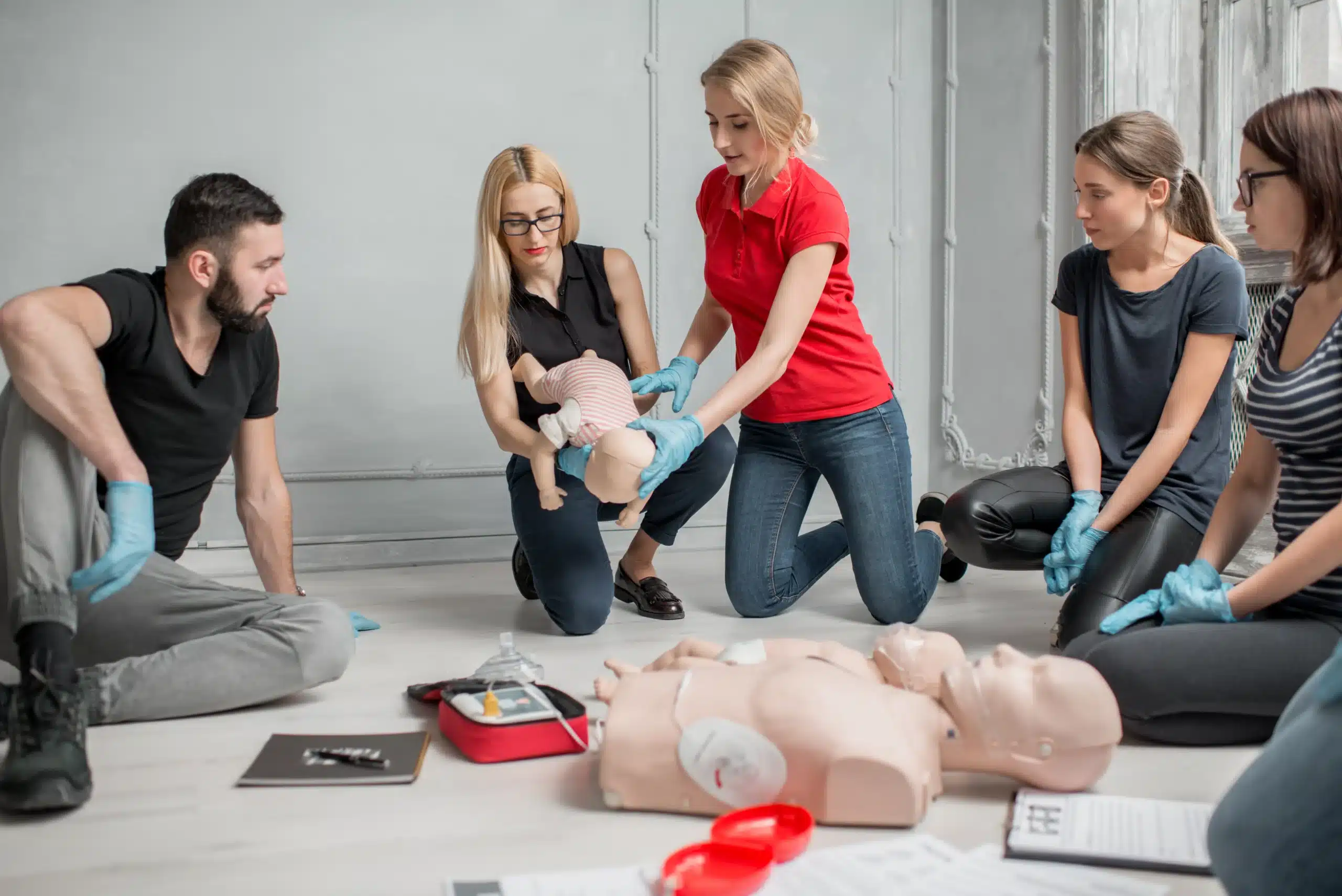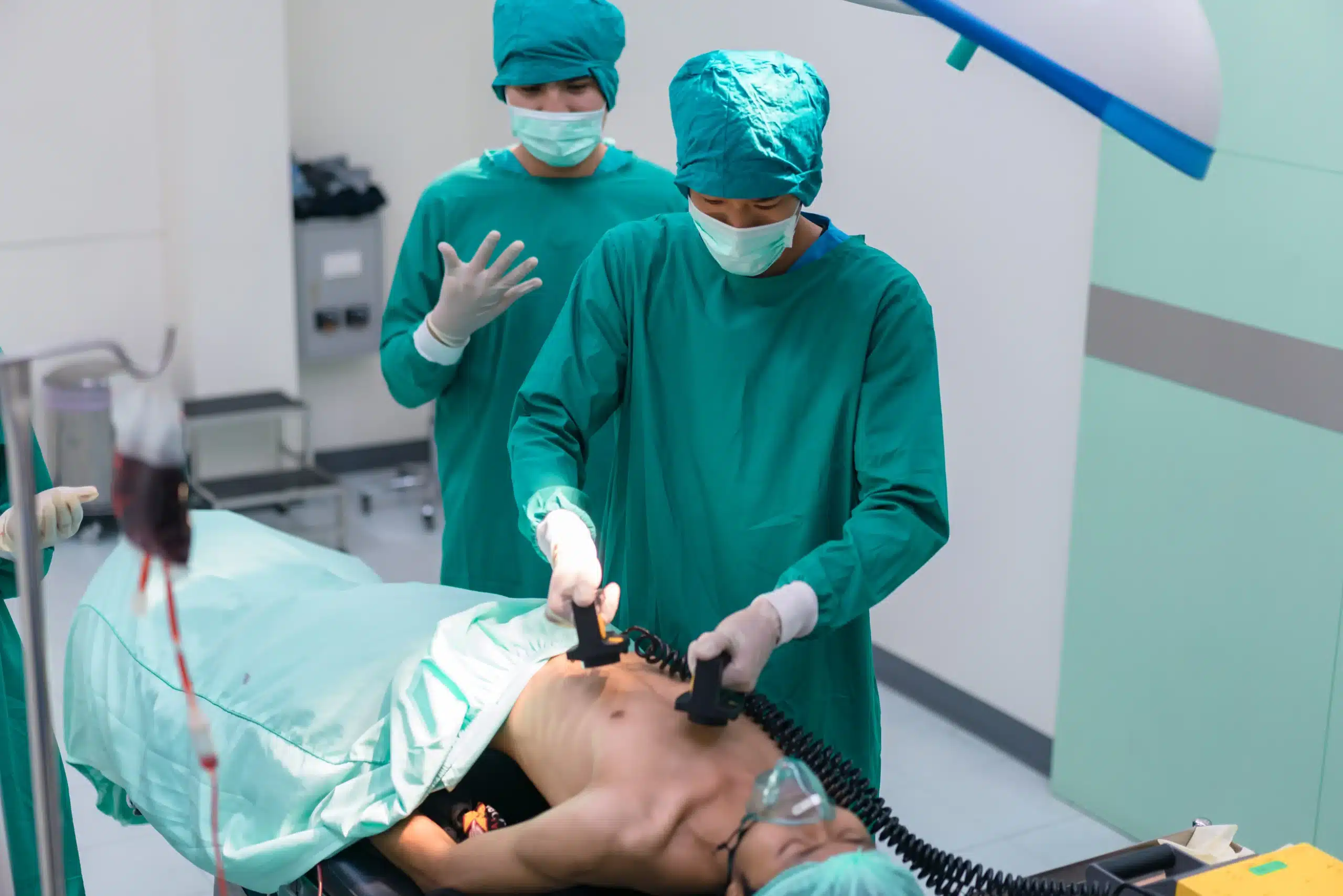Are you a healthcare professional in Santa Clara looking to enhance your life-saving skills? ACLS courses in Santa Clara can provide the advanced training you need to confidently manage cardiovascular emergencies. This comprehensive guide covers everything from understanding the different types of ACLS courses and their costs to navigating the enrollment process and finding the best training providers in the area. We’ll also delve into what happens during an ACLS course, how to prepare effectively, and the importance of maintaining your certification.
Key Takeaways
- ACLS certification provides advanced life-saving skills: From managing cardiac arrest to responding to strokes, ACLS training equips healthcare providers with the expertise to handle complex cardiovascular emergencies. Explore options like initial certification, recertification, and specialized training to match your career level.
- Choosing the right ACLS course requires careful consideration: Evaluate factors like cost, schedule, and the training center’s reputation. Providers like Milpitas CPR Classes offer convenient locations and a range of AHA-certified courses, serving Milpitas, San Jose, and Santa Clara. Look for discounts and compare options to find the best fit.
- Preparing for your ACLS course sets you up for success: Review important concepts like cardiac rhythms and algorithms. Utilize online resources and pre-course materials offered by your chosen provider. Remember that maintaining your certification involves continuing education and staying informed about the latest AHA guidelines.
What are ACLS Courses in Santa Clara?
ACLS stands for Advanced Cardiovascular Life Support. These courses in Santa Clara are designed to give healthcare providers the advanced, practical skills they need to manage serious cardiovascular emergencies. Think of it as the next level of training beyond basic life support. Doctors, nurses, paramedics, and other medical personnel who might face life-threatening situations in their work benefit from this specialized training. ACLS courses are offered throughout Santa Clara, making it convenient to find a class.
The American Heart Association (AHA) sets the standard for ACLS training, using a blended learning approach. This typically involves a few hours of online coursework, followed by a shorter in-person skills session at a certified location like our facility in nearby Milpitas. This hands-on portion is where you’ll put your knowledge into action. Once you successfully complete both the online and in-person components, you’ll receive an official AHA ACLS certification card, which is widely recognized across the country. The training covers the most up-to-date guidelines and protocols and also emphasizes the critical role of teamwork and clear communication during emergencies.
ACLS Course Types
Understanding the different types of ACLS courses available can help you choose the right one for your needs. Whether you’re a first-time student or a seasoned healthcare provider, selecting the appropriate course type is key to your success.
Initial Certification
The initial ACLS certification course provides a comprehensive introduction to advanced cardiovascular life support. This course, offered by providers like Milpitas CPR Classes, covers essential topics such as cardiopulmonary arrest, acute coronary syndromes (like heart attacks), and stroke management. Expect the course to take approximately six hours, including video training modules, realistic scenarios, and a final exam. You’ll need to complete all video modules before progressing to the hands-on scenarios and testing.
Renewing Your Certification
For healthcare providers needing to renew their ACLS certification, a recertification course is available. These ACLS renewal courses offer a streamlined curriculum focused on refreshing your knowledge and skills. As explained in this helpful article on ACLS recertification, renewal courses are generally shorter than the initial certification course, and the cost is typically lower.
Specialized Training
Beyond initial certification and renewal, you might consider specialized ACLS training to enhance your expertise in specific areas. While the core ACLS curriculum covers a broad range of emergencies, specialized training can delve deeper into particular scenarios or patient populations. This type of training often involves interactive simulations and hands-on practice, ensuring you’re well-prepared for real-life situations. Santa Clara CPR Classes is one example of a provider that offers a variety of specialized courses. Check with your employer or preferred training center to see what specialized ACLS courses they offer.
ACLS Course Costs & Value
Getting ACLS certified is an investment in your career and the lives you touch. Understanding costs and finding the best value is key to making the right choice for your training. Let’s break down what you can expect.
Average Pricing & Price Matching
ACLS courses in Santa Clara vary in price, but you can find high-quality, affordable training. Milpitas CPR Classes offers its ACLS course for $290, advertised as the lowest price in the area, with a price-match guarantee. This commitment to affordability makes accessing this essential training easier. Knowing the average cost helps you compare options and find the best fit for your budget.
Discounts & Promotions
Many training centers offer discounts and promotions. Look for special offers for groups, students, or returning customers. Santa Clara CPR Classes often highlights its commitment to affordable training, so checking their website for current deals is a smart move. Bundling courses like BLS and ACLS together can also save you money.
Group & Seasonal Offers
If you’re training with colleagues or friends, explore group discounts. Many providers, including those offering CPR classes in Milpitas, arrange on-site group training, often at a reduced rate. This can be a convenient and cost-effective way to get certified together. Also, check for seasonal promotions; some centers offer lower prices during slower periods.
Enrollment Prerequisites
Before you sign up for an ACLS course in Santa Clara, make sure you meet a few requirements. These prerequisites ensure you’re prepared to learn the advanced life-saving techniques covered in the course.
BLS Certification
You’ll need a current Basic Life Support (BLS) certification from the American Heart Association (AHA). This is a fundamental requirement for both initial ACLS courses and renewals. Other certifications may not be accepted. Check with your chosen provider or the AHA website for more information on accepted BLS certifications.
Online Pretest
Most ACLS courses require an online pretest before class. This helps evaluate your current knowledge and highlight areas for improvement. Your course provider will share a link to the pretest. After completing the pretest, print the completion certificate and bring it to class, or email it to your provider beforehand.
Provider Manual & Rhythm Recognition
You’ll need the current AHA version of the ACLS Provider Manual. Purchase the manual from your course provider or from other retailers. Having your own copy is helpful for studying during and after the course. You should also be comfortable recognizing key cardiac rhythms like Normal Sinus Rhythm (NSR), Sinus Bradycardia (SB), and Sinus Tachycardia (ST). You won’t need to interpret a 12-lead EKG. Several online resources can help you review rhythm recognition if needed.
In-Person vs. Online Courses
Choosing the right ACLS course format depends on your learning style and schedule. Let’s break down the pros and cons of in-person, online, and blended learning options.
In-Person Training Benefits
In-person ACLS courses offer a structured learning environment with direct interaction with instructors and peers. This format excels in hands-on training, allowing you to practice essential skills like CPR and rhythm recognition with immediate feedback. The face-to-face interaction also makes it easier to ask questions and clarify concepts in real-time. Plus, many providers, including those offering ACLS classes in Santa Clara, offer convenient daily schedules, often running from 7 am to 6 pm, seven days a week. You’ll typically receive your certification card the same day you complete the course, streamlining the process.
Online Course Advantages
Online ACLS courses provide flexibility for those with busy schedules or limited access to in-person training centers. Reputable online programs use interactive elements like simulations and multimedia to enhance learning. This format allows you to learn at your own pace and revisit material as needed. However, keep in mind that while online courses effectively cover the theoretical aspects of ACLS, most certifying bodies, including the American Heart Association, require an in-person skills assessment for certification. Make sure to choose an online ACLS provider that aligns with these requirements.
Blended Learning
Blended learning combines the best of both worlds, offering the flexibility of online learning with the practical application of in-person skills sessions. Programs like the HeartCode ACLS course utilize adaptive learning technology to personalize the online portion, focusing on your specific needs. You’ll complete the online modules at your own pace, then schedule a shorter in-person session for skills testing and certification. This approach can be particularly beneficial for those refreshing their certification through programs like RQI, which often offer a streamlined process with same-day card issuance upon successful completion of both the online and skills components.
What Happens During ACLS Training?
This section covers what you can expect during an ACLS course, from the structure and duration to the key topics, hands-on practice, and skills testing. Understanding these elements will help you feel prepared and confident going into your training.
Course Structure & Duration
ACLS courses typically blend online learning with in-person skills sessions and testing. You can find ACLS classes offered daily, providing flexibility to fit your schedule. The Santa Clara CPR Classes center, for example, offers courses seven days a week, from 7 am to 6 pm. This makes it easier to find a time that works for you.
Key Topics
ACLS training builds upon the foundation of Basic Life Support (BLS) and covers the advanced life-saving techniques needed to manage cardiopulmonary arrest and other cardiovascular emergencies. Key topics include recognizing and managing cardiopulmonary arrest, acute coronary syndromes (ACS), and stroke. You’ll learn algorithms for effective treatment and practice essential skills for these critical situations.
Hands-on Practice & Simulations
ACLS courses aren’t just lectures and textbooks. They emphasize hands-on learning through interactive simulations and practice scenarios. This allows you to apply your knowledge in a safe environment, building confidence and proficiency. You’ll work with a team, practicing communication and coordination—essential elements in real-life emergency responses.
Skills Testing
Your ACLS training culminates in a skills test to assess your competency. This typically involves demonstrating your proficiency in various skills, including CPR, airway management, and rhythm recognition. The skills testing portion usually takes around 40 minutes and is conducted at the training center. Upon successful completion, you’ll receive your official ACLS certification card.
Top Santa Clara ACLS Providers
Finding the right ACLS course can feel overwhelming, but several respected providers in Santa Clara County offer high-quality training. Here’s a closer look at some of your options:
Milpitas CPR Classes
If you’re near Milpitas, Milpitas CPR Classes offers AHA-certified BLS, ACLS, PALS, and CPR courses through Safety Training Seminars. Their convenient location serves those living or working in Milpitas, San Jose, and Santa Clara, making them a practical choice for busy professionals and students. You can find more information about their CPR training on Bay Area CPR.
AHA Training Centers
Santa Clara CPR Classes is another excellent option for AHA certifications like BLS, ACLS, PALS, and First Aid. They emphasize affordability and convenience, with flexible scheduling and a low-price guarantee, making them attractive for budget-conscious individuals.
Hospitals & Medical Centers
Many hospitals and medical centers in Santa Clara also offer ACLS training. These courses often benefit healthcare professionals working within their facilities. Some hospitals may also open their courses to the public. Master ACLS highlights the value of ACLS training for a wide range of healthcare providers, so checking with local hospitals is worth considering.
Community Colleges
Community colleges in Santa Clara frequently offer CPR courses, from basic life support to advanced certifications. These courses can be a good option for those seeking a structured learning environment, often at a lower cost than private training centers. Community colleges also serve the broader community, increasing accessibility for a wider range of individuals.
Prepare for Your ACLS Course
Getting ready for your ACLS course can make a big difference in how well you perform. A little prep work goes a long way, especially if you want to feel confident going into the training. Here’s how to get started:
Review Cases & Algorithms
ACLS training builds on the fundamentals of Basic Life Support (BLS) with advanced techniques. You’ll cover a range of complex medical emergencies, from cardiopulmonary arrest and acute coronary syndromes to stroke management. Familiarizing yourself with these topics ahead of time can give you a head start. The ACLS course often incorporates interactive simulations and hands-on practice, so understanding the underlying principles is key.
Practice Rhythm Recognition
Recognizing heart rhythms is a core component of ACLS. You’ll need to identify key rhythms like normal sinus rhythm (NSR), sinus bradycardia (SB), sinus tachycardia (ST), supraventricular tachycardia (SVT), ventricular fibrillation (VF), ventricular tachycardia (VT), pulseless electrical activity (PEA), asystole, and various heart blocks. While interpreting a 12-lead EKG isn’t a requirement, being able to distinguish between these rhythms is essential for effective treatment. Review the ACLS course requirements to learn more.
Use Online Resources
Many providers offer online resources, such as pre-course materials and review videos, to help you prepare. These resources can significantly improve your understanding of the material and increase your chances of success. Some programs suggest that watching online review videos can significantly improve your likelihood of passing the skills test. Consider setting aside a few hours for online review before your course.
Maintain Your ACLS Certification
Keeping your ACLS certification current is essential for any healthcare provider. It ensures you’re prepared to deliver the best possible care in critical situations. This section covers how to stay up-to-date with your ACLS credentials.
Renewal Process
ACLS certification is valid for two years. When it’s time to renew, you’ll take a shorter refresher course focusing on key skills and knowledge. This ACLS renewal course covers essential algorithms, protocols, and pharmacology updates, ensuring you’re ready to respond effectively in emergencies. Check with your certifying body, such as the American Heart Association, for specific renewal requirements.
Continuing Education
Beyond the standard renewal process, ongoing continuing education is crucial for staying sharp. Regularly reviewing ACLS guidelines and participating in relevant workshops or online modules can help you maintain proficiency. This commitment to continuous learning demonstrates your dedication to providing high-quality patient care. Resources like the American Heart Association website offer valuable information and updates.
AHA Guideline Updates
The American Heart Association periodically updates its ACLS guidelines based on the latest scientific evidence and best practices. Staying informed about these updates is vital for maintaining your certification and providing effective care. These updates often include changes to algorithms, medications, and treatment protocols, so staying current is essential for optimal patient outcomes. You can find the most recent guidelines and updates on the American Heart Association website.
Choose the Right ACLS Course
Finding the right ACLS course takes a little research, but it’s worth it to ensure you get quality training. This section will guide you through the key factors to consider when making your decision.
Factors to Consider
When selecting an ACLS course, prioritize both quality instruction and affordability. Look for providers offering convenient schedules and a variety of American Heart Association (AHA) certified courses like BLS, ACLS, PALS, and First Aid. Santa Clara CPR Classes discusses the importance of flexibility and AHA recognition for CPR certification in the Santa Clara, Milpitas, and San Jose areas. A low price guarantee is also a helpful factor to consider.
Compare Providers & Reviews
Take time to compare different training providers and read reviews. This helps ensure you choose a reputable course that meets your needs. Safety Training Seminars recommends checking out local options for BLS, ACLS, and PALS courses to find one that fits your schedule and location.
Address Concerns & Misconceptions
It’s important to address common misconceptions about ACLS training. Some people think ACLS is only for certain medical professionals, but it’s relevant to many, including emergency room physicians, anesthesiologists, critical care nurses, and paramedics. Cascade Training’s blog post clarifies that ACLS goes beyond basic CPR, covering more comprehensive life support techniques. ACLS training isn’t limited to specific specialties or settings. It’s valuable for any healthcare provider who might encounter cardiac emergencies, as explained in this article on common ACLS myths. This broad application makes ACLS essential for various healthcare roles.
Related Articles
- Online ACLS Classes in San Jose: Certification Guide – Milpitas CPR Classes
- AHA ACLS Classes in Milpitas, CA – Milpitas CPR Classes
- BLS ACLS Courses in San Jose: A Complete Guide – Milpitas CPR Classes
- CPR Training in Santa Clara: A Complete Guide – Milpitas CPR Classes
- CPR Certification in San Jose: Your Complete Guide – Milpitas CPR Classes
Frequently Asked Questions
What exactly does ACLS cover that goes beyond basic CPR?
ACLS training builds upon basic life support (BLS) skills. It delves into advanced techniques for managing respiratory and cardiac arrest, including recognizing and treating heart rhythms, administering specific medications, and understanding the importance of teamwork during these critical events. It also covers the acute management of conditions like heart attacks and strokes.
How do I choose between in-person and online ACLS courses?
Think about your learning style and schedule. In-person classes offer hands-on practice and immediate feedback from instructors. Online courses provide flexibility, allowing you to learn at your own pace. However, remember that most online courses still require an in-person skills assessment to receive your official certification. Blended learning, which combines online modules with in-person skills sessions, offers a balance of both.
If I’m already BLS certified, what else do I need before starting ACLS?
Besides a current AHA BLS certification, you’ll typically need to complete an online pretest and have the current ACLS Provider Manual. Check with your chosen training center for their specific requirements, as some may have additional prerequisites.
How often do I need to renew my ACLS certification, and what does that involve?
ACLS certifications are valid for two years. Renewal involves taking a recertification course, which is generally shorter than the initial course. It focuses on refreshing your knowledge and skills, covering any updates to guidelines and protocols.
What are the typical costs associated with ACLS certification in Santa Clara?
Costs vary, but expect to pay somewhere in the $200-$300 range. Look for providers offering price matching or discounts, especially for groups or returning students. Some training centers also offer package deals if you’re taking multiple courses, like BLS and ACLS together. It’s always a good idea to compare prices and check for any ongoing promotions.
